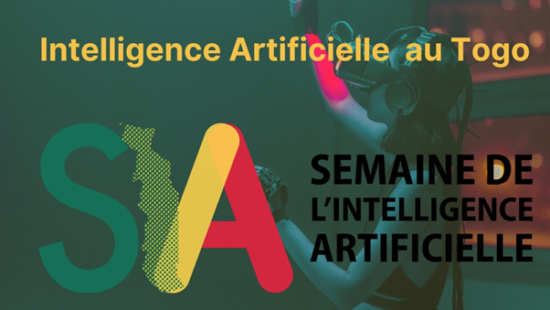
In a few days (September 14, 2023), Senegal will have a national strategy for the development of artificial intelligence. A first in Africa, if we are to believe Souleymane Astou Diagne. The chief of staff of the Minister of Communication, Telecommunications and the Digital Economy spoke on the occasion of the second edition of the digital back-to-school around the theme: “The opportunities and threats of Artificial Intelligence on the economy, businesses and organizations: what attitude to adopt?
According to him, this decision is explained by the desire of the Senegalese government to take advantage of the full potential of digital technology. “The document was developed using an inclusive approach. All the actors were involved. We hope that with its official launch, Senegal will provide itself with an appropriate framework for the development of AI,” he indicated.
Present today in almost all areas of human life, artificial intelligence is changing many habits. A dynamic that is not ready to fade. This is why Ibrahima Eddine Diagne, administrator of Gaïndé 2000, believes that both public and private authorities must take steps to avoid being left behind.
“This technology that is taking shape will impact our organizations and our economies. It is important to take into account the issues to see how to integrate it. The biggest risk is that the mutation is very rapid and it is not localized in a single place,” he said from the outset.
“Whether we take it into account or not, AI will inevitably impact our lives”

AI in Africa: Key Concerns and Policy Considerations for the Future of the Continent, Africa Policy Institut
Continuing, he believes that it is more than essential to integrate AI, because, he says, “In any case, whether we take it into account or not, it will inevitably impact our lives. We must pool resources. Initiatives exist here, but they are scattered. We have data, we now need to connect initiatives and data. Because there is an external threat. If we do nothing, our organizations will lose productivity and efficiency. This is the big risk.”
On the side of private digital players, relief is the best shared feeling because the public authorities seem to have fully understood the challenges.
African response
Antoine Ngom, President of the organization of ICT professionals (Optic), calls on the entire ecosystem to embrace artificial intelligence.
“The most important transition these days is that of digital. But to succeed, we need an African response. We must not say that we are behind developed countries and not be interested in AI. That would be a big mistake. It can even make it possible to make up for our delay in several areas,” he insisted. For greater efficiency, he pleads for an African response, but with mastery of the digital space through mastery of infrastructure, data and strategies... With this national strategy, private sector actors are in heaven. which had made this document a priority, given the issues of the moment.





